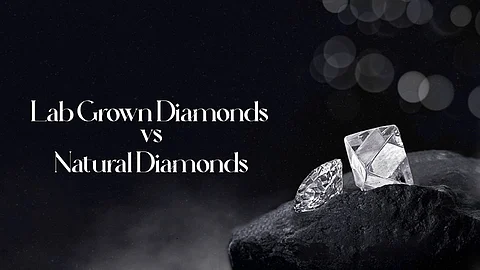

The Central Consumer Protection Authority (CCPA) is poised to launch comprehensive guidelines for the diamond industry, aimed at ensuring explicit labelling and certification of all diamonds while prohibiting misleading trade practices. The announcement followed a stakeholder consultation focused on consumer protection in the diamond sector, the authority said in a statement on Tuesday.
The consultation, chaired by Nidhi Khare, Chief Commissioner of the CCPA, brought together industry stakeholders and experts to address the need for standardised terminology and enhanced transparency in diamond trade.
"The CCPA will soon release a robust framework to ensure transparency, accountability, and consumer protection across the diamond industry," the statement noted.
Key Industry Concerns Addressed
The meeting highlighted significant issues, including the lack of standardised terminology and inadequate disclosure practices, which have often led to consumer confusion. Particular emphasis was placed on the distinction between natural and lab-grown diamonds, an area rife with misleading practices.
Proposed Measures for Consumer Protection
The proposed guidelines aim to address these concerns comprehensively by mandating:
- Explicit labelling and certification: All diamonds must specify their origin and production method.
- Prohibition of misleading terms: Words such as "natural" or "genuine" will be barred from describing lab-grown products.
- Accreditation for testing laboratories: A system to regulate diamond testing labs will be implemented to curb the rise of unregulated entities.
These measures are expected to bolster consumer confidence and promote ethical marketing practices in the diamond sector.
Legal and Regulatory Framework
During the consultation, existing legal and regulatory frameworks were reviewed in detail. The CCPA underscored critical provisions, including:
- Legal Metrology Act, 2009: Standardises the unit of measurement for diamonds as the carat, equivalent to 200 milligrams, ensuring consistency in commercial transactions.
- Bureau of Indian Standards (BIS) IS 15766:2007: Limits the use of the term "diamond" to natural diamonds, requiring synthetic variants to be explicitly labelled as "synthetic diamonds."
- Consumer Protection Act, 2019: Prohibits unfair trade practices, including misleading descriptions and omissions, while mandating transparent labelling.
Further, the Central Board of Indirect Taxes and Customs (CBIC) mandates clear declarations regarding whether a diamond is natural or lab-grown. For lab-grown diamonds, the production method—such as Chemical Vapor Deposition (CVD) or High Pressure High Temperature (HPHT)—must also be disclosed.
A Step Toward Transparency
The stakeholder consultation marks a significant step in building a transparent, consumer-centric diamond market. By addressing existing gaps and enforcing ethical practices, the CCPA aims to create a regulatory framework that safeguards consumer interests and enhances the credibility of the diamond industry.
The upcoming guidelines are anticipated to set a new standard for transparency and accountability, fostering trust among consumers and stakeholders alike.
